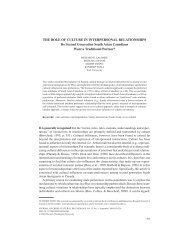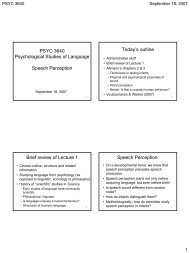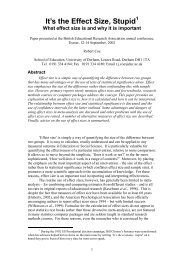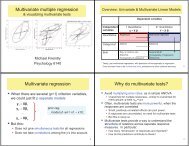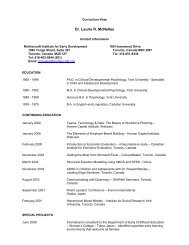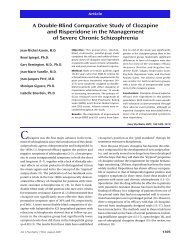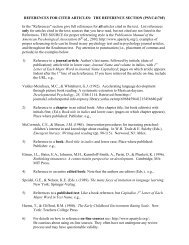The Drama of the Gifted Child (The Search for the True Self)
The Drama of the Gifted Child (The Search for the True Self)
The Drama of the Gifted Child (The Search for the True Self)
You also want an ePaper? Increase the reach of your titles
YUMPU automatically turns print PDFs into web optimized ePapers that Google loves.
ceptional capacity <strong>for</strong> suffering. Perhaps <strong>the</strong> same is true<br />
<strong>of</strong> Vincent van Gogh, whose mo<strong>the</strong>r, throughout her life,<br />
mourned and idealized <strong>the</strong> first Vincent who had died very<br />
young. (Humberto Nagera, 1967).<br />
<strong>The</strong> narcissistically ca<strong>the</strong>cted child has <strong>the</strong> chance to develop<br />
his intellectual capacities undisturbed, but not <strong>the</strong><br />
world <strong>of</strong> his emotions, and this will have far-reaching consequences<br />
<strong>for</strong> his well-being. Now his intellect will assume<br />
a supportive function <strong>of</strong> enormous value in streng<strong>the</strong>ning<br />
his defense mechanism, but hidden behind that, his narcissistic<br />
disturbance may grow deeper.<br />
We may, in fact, find various mixtures and nuances <strong>of</strong><br />
narcissistic disturbances. For <strong>the</strong> sake <strong>of</strong> clarity, I shall try<br />
to describe two extreme <strong>for</strong>ms, <strong>of</strong> which I consider one to<br />
be <strong>the</strong> reverse <strong>of</strong> <strong>the</strong> o<strong>the</strong>r—grandiosity and depression.<br />
Behind manifest grandiosity, <strong>the</strong>re constantly lurks depression,<br />
and behind a depressive mood <strong>the</strong>re <strong>of</strong>ten hide unconscious<br />
(or conscious but split <strong>of</strong>f) fantasies <strong>of</strong> grandiosity.<br />
In fact, grandiosity is <strong>the</strong> defense against depression, and<br />
depression is <strong>the</strong> defense against <strong>the</strong> deep pain over <strong>the</strong> loss<br />
<strong>of</strong> <strong>the</strong> self.<br />
Grandiosity. <strong>The</strong> person who is "grandiose" is admired<br />
everywhere and needs this admiration; indeed, he cannot<br />
live without it. He must excel brilliantly in everything he<br />
undertakes, which he surely is capable <strong>of</strong> doing (o<strong>the</strong>rwise<br />
he just does not attempt it). He, too, admires himself—<strong>for</strong><br />
his qualities: his beauty, cleverness, talents—and <strong>for</strong> his<br />
success and achievements. Woe betide if one <strong>of</strong> <strong>the</strong>se fails<br />
him, <strong>for</strong> <strong>the</strong>n <strong>the</strong> catastrophe <strong>of</strong> a severe depression is imminent.<br />
It is usually considered normal that sick or aged<br />
people who have suffered <strong>the</strong> loss <strong>of</strong> much <strong>of</strong> <strong>the</strong>ir health<br />
and vitality, or, <strong>for</strong> example, women at <strong>the</strong> time <strong>of</strong> <strong>the</strong><br />
menopause, should become depressive. <strong>The</strong>re are, however,<br />
o<strong>the</strong>r personalities who can tolerate <strong>the</strong> loss <strong>of</strong> beauty,<br />
38



